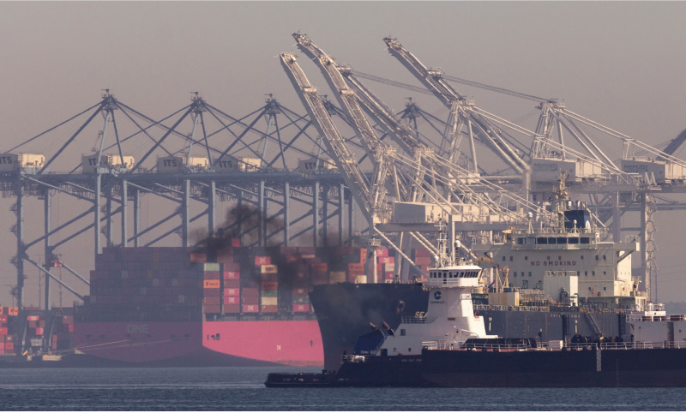Charging shipping emissions
- Oct 24, 2025
- 3 min read
Blocked by US intimidation tactics
Earlier this year representatives from 175 countries gathered in London at the International Maritime Organisation (IMO) to agree on the final details of a deal to decarbonise shipping. If the most ambitious proposal had been realised, the agreement would also require all ships to pay a small charge based on the greenhouse gases they emit, of which the proceeds would fund climate action in poor countries. Shipping companies would have to pay for the carbon dioxide produced by their vessels for the first time under new rules agreed to by the world’s maritime watchdog.

But powerful economies, including China, Brazil and Saudi Arabia, oppose the levy, while others, including the EU, are seeking to drastically water it down. Poor countries fear the negotiations are already falling apart, and that they will lose out on funding for climate action. Ambassador Albon Ishoda from the Marshall Islands, speaking on behalf of an alliance of Pacific and Caribbean small island states, said rich nations and large developing countries were backing out of previous promises. A majority of countries meeting at the International Maritime Organisation (IMO) in London approved a compromise deal that will mean all ships must pay for the CO2 they emit, starting in 2028.
Vessels will be subject to a charge on their greenhouse gas emissions, increasing after a certain threshold, and will also be able to trade carbon credits with one another. This is intended to encourage them to adapt their ships to use low-CO2 fuels and to operate more efficiently, for instance by slowing down and thereby using less fuel, instead of the current wasteful practice of rushing to ports, then idling nearby.
This agreement is still missing a lot of key ingredients and allows for many loopholes, but it would have been a decent start. For many of the Island nations where this agreement is a matter of survival, the agreement falls grossly short. Simon Kofe, minister of transport and energy for Tuvalu said: “While larger, wealthier nations debate the threat to livelihoods, Pacific island nations are forced to consider the threat to lives and to statehood itself. That is the scale of what is at stake. We call on every delegation to set a course toward a just and equitable transition. This is about more than shipping. It is about survival.”
The agreement was expected to reach consensus, if it hadn’t been for the US administration. The Trump administration has used bullying and intimidation tactics, threatening to impose tariffs, end trade deals, withdraw visa rights, and take other retaliatory action.
The US secretary of state, Marco Rubio, along with energy secretary Chris Wright and transport secretary Sean Duffy, issued a public statement, threatening to slap tariffs on countries that supported the measure, as well as other commercial penalties, such as port fees on ships that complied.

Perhaps the saddest thing is that most of the global nations cave in to pressure from a tyrant. Even Island nations gave in to the threas issued by the US administration. But not all is lost yet, the agreement has been frozen for a year. What you can do is increase the pressure on your government by writing to your national government:
Demand a just and equitable agreement
Demand they represent their own country’s interests.
Remind them the world doesn’t need the US
Forge other trade relations to dampen the impact the US can have
Above all start protests and petitions, protests can show how many people find this an important topic. Petitions require work, but they form a paper testimony to the wishes of the people. Deliver them by the 100, or the 1000, every time just a bit, sending your government message after message to act, and “grow a spine”.









Comments